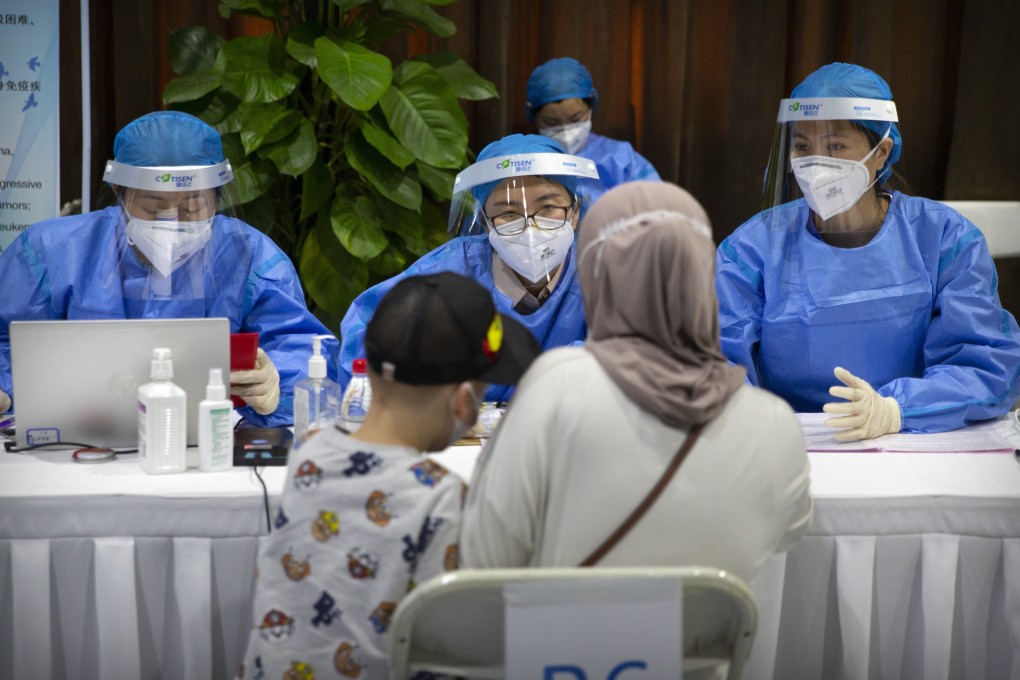China’s Sinovac Biotech says its Covid-19 vaccine appears safe for children
- Vaccine also appears able to trigger immune response in children, developer says after early and mid-stage trials, although detailed data was not released
- Sinovac’s trials, including children aged three to 17, are among several by the world’s vaccine makers as countries aim to inoculate their populations

Zeng Gang, a researcher with Beijing-based Sinovac, said the company’s vaccine was able to provoke an immune response – indicating it could be effective at preventing Covid-19 infection – in a trial that included children aged three to 17.
Most adverse reactions were mild, Zeng said, with two children reported to have experienced a higher fever, although further details were not provided.
Antibody levels provoked by the vaccine were higher than those seen in adults in earlier clinical trials, Zeng said at an academic conference in Beijing this week, according to Reuters.

03:05
China-made coronavirus vaccines widely distributed despite efficacy concerns
The results were based on early and mid-stage trials that included more than 500 children. The trials began in October in Hebei province, northern China, and children were given either a low or medium-dose regime, or a placebo, according to a clinical trial registration.